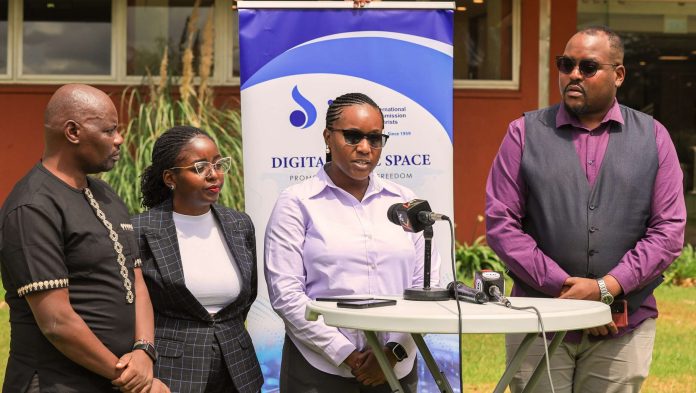Nairobi, Kenya – In a significant step toward safeguarding digital rights and constitutional freedoms, the Collaboration on International ICT Policy for East and Southern Africa (CIPESA) and six other organisations have filed a landmark public interest case before the High Court of Kenya to challenge the arbitrary and unlawful disruptions of internet access in the country.
The petitioners – Bloggers Association of Kenya (BAKE), Katiba Institute, Kenya Union of Journalists (KUJ), Law Society of Kenya (LSK), Paradigm Initiative (PIN), the International Commission of Jurists – Kenya Section (ICJ Kenya), and CIPESA, seek judicial redress following recurring internet disruptions during critical national moments, including the 2024 #RejectFinanceBill protests and the 2024 Kenya Certificate of Secondary Education (KCSE) examinations.
Following the filing of the case, High Court Justice Bahati Mwamuye issued interim orders prohibiting any interference with internet access until the case is heard and determined. The legal challenge targets the Communications Authority of Kenya (CA), the Attorney General, the Cabinet Secretary for Information, Communications and the Digital Economy, and service providers Safaricom and Airtel Kenya.
The petition relies on technical evidence from Cloudflare, the Open Observatory of Network Interference (OONI), and the Internet Outage Detection and Analysis (IODA), which confirms instances of intentional internet throttling and platform blocking, such as the disruption of Telegram.
“These unlawful internet shutdowns directly violate rights enshrined in the Kenyan Constitution, including freedom of expression (Article 33), media freedom (Article 34), access to information (Article 35), and economic and social rights (Article 43),” said Eric Mukoya, Executive Director of ICJ Kenya.
Speaking on behalf of CIPESA, Patricia Ainembabazi, Policy and Advocacy Officer, stated:
“This is a trend-setting moment for Kenya as a country to uphold the rule of law and adhere to the African Commission on Human and Peoples’ Rights Resolution 580, which speaks directly to freedoms of expression and deters internet shutdowns. With the recent positive ECOWAS Court judgments in Guinea, Togo and Nigeria, we hope that East Africa will do better.”
The case marks a pivotal moment in the defence of the digital civic space in Kenya. The petitioners argue that any restriction to internet access must be subject to strict legal scrutiny under Article 24 of the Constitution, which requires any limitation to be lawful, necessary, and proportionate.
“The outcome of this case will have far-reaching implications for millions of Kenyans who rely on unimpeded connectivity for livelihoods, education, and civic engagement,” said Kennedy Kachwanya, Chairperson of BAKE. “We call upon civil society, media partners, and the international community to amplify this crucial fight for digital rights as a cornerstone of Kenya’s democratic future.”
This collective legal action is part of a growing continental movement to resist digital repression and promote rights-respecting governance in Africa’s digital age.
Signed,
1. Bloggers Association of Kenya (BAKE)
2. Collaboration on International ICT Policy for East and Southern Africa (CIPESA)
3. Katiba Institute
4. Kenya Union of Journalists (KUJ)
5. Law Society of Kenya (LSK)
6. Paradigm Initiative (PIN)
7. The International Commission of Jurists, Kenya Section (ICJ Kenya)




